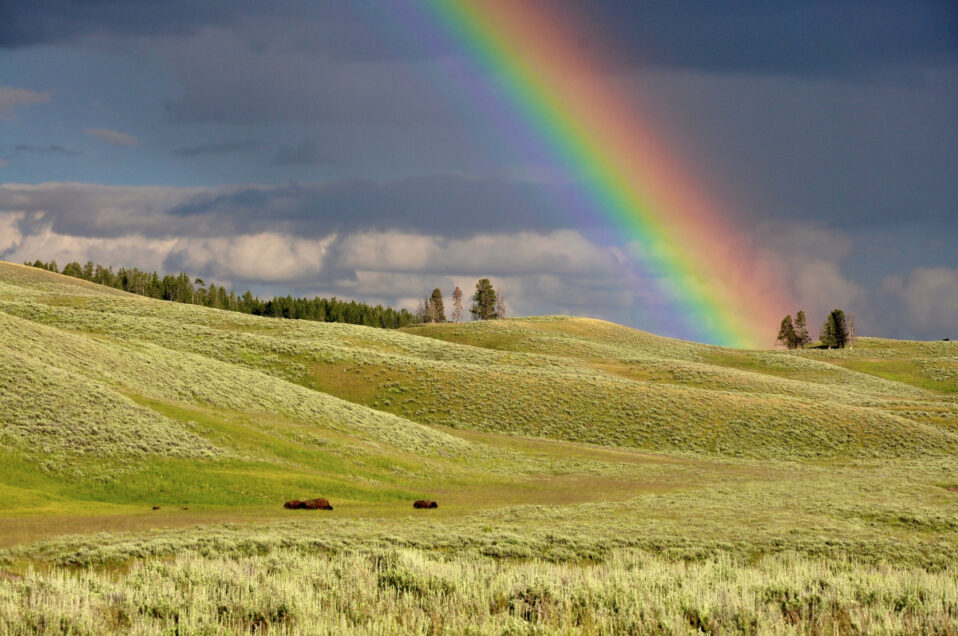Dangers Ahead
(But Hope, Too)
The U.N. Intergovernmental Panel on Climate Change (IPCC) report released on March 21st found that the world is likely to surpass its most ambitious climate target — limiting warming to 1.5 degrees Celsius (2.7 degrees Fahrenheit) above preindustrial temperatures — by the early 2030s. This most recent assessment by the IPCC synthesizes years of studies on the causes and consequences of rising temperatures.
In unequivocal terms, the report states that “The world is likely to pass a dangerous temperature threshold within the next 10 years, pushing the planet past the point of catastrophic warming — unless nations drastically transform their economies and immediately transition away from fossil fuels.” Scientists have found that beyond that threshold “climate disasters will become so extreme that people will not be able to adapt. Basic components of the Earth system will be fundamentally, irrevocably altered. Heat waves, famines, and infectious diseases could claim millions of additional lives by century’s end”.
“Human activities have already transformed the planet at a pace and scale unmatched in recorded history, the IPCC said, causing irreversible damage to communities and ecosystems. Yet global emissions continue to rise, and current carbon-cutting efforts are wildly insufficient to ward off climate catastrophe.”
Scientists have identified the need to keep global warming to 1.5 degrees Celsius (2.7 Fahrenheit) as the threshold which would help save the world’s coral reefs and preserve the Arctic’s protective sea ice layer. This would help prevent dramatic sea level rise by avoiding further destabilization in Antarctica and Greenland.
The IPCC report shows humanity has reached a “critical moment in history,” IPCC Chair Hoesung Lee said. “The world has all the knowledge, tools and financial resources needed to achieve its climate goals, but after decades of disregarding scientific warnings and delaying climate efforts, the window for action is rapidly closing.”
Five key takeaways from the IPPC report:
- Climate change has already wreaked havoc on the planet.
- Every bit of warming matters.
- The impacts of climate change are and will continue to be severe.
- The warmer the world, the more animal species at serious risk.
- There is a window to act, but it’s small and getting smaller.
Climate change has already wreaked havoc on the planet.
Although this report is dire, there is hope. Today there are numerous organizations and individuals actively working for a sustainable climate. It will, however, take the combined efforts of people throughout the world to make the changes necessary. Our faith also calls us to take an active role in working a sustainability. In Laudato Si”, Pope Francis’ encyclical on the environment, he repeatedly calls for our active participation in caring for God’s creation and reminds us that those who are suffering the most from climate change are the poorest individuals and countries; those least responsible for the damage.
What can be done? Below are some ideas to get started:
- Reduce food waste
- Start by buying less food and shopping more frequently, if possible. If your schedule doesn’t permit that, you can prevent food waste by choosing fruits and veggies that freeze well. Chop most of your produce haul when you get home and freeze it. Added bonus: this also cuts down on meal prep time.
- Find and support your local community compost center by bringing food scraps, volunteering, and/or donating.
- Begin a more plant-rich diet
- Going plant-based (or mostly plant-based) is one of the most impactful actions you can take as an individual, and it’s also an approach that has huge potential if the masses follow suit.
- Gradually reduce your meat consumption while increasing protein-rich foods like beans, nuts, and whole grains. If you do consume meat, think of it as an embellishment to the meal rather than the main course (added bonus: your health will likely improve dramatically too).
- Work with others by joining an organization that works for environmental sustainability
- At the national and/or international level:
- The Nature Conservancy (nature.org)
- The Sierra Club (act.sierraclub.org)
- Interfaith Power and Light (most states have state chapters)
- At the national and/or international level:
(www.interfaithpowerandlight.org)
At the local level in the Greater Cincinnati area, join an organization and/or check out their websites for programs and suggestions:
-
- Faith Communities Go Green (fcgg.org)
- Green Umbrella (greenumbrella.org)
- EarthConnection (scearthconnection.org)
Check the above website for prayerful photo reflection on Laudato Si’ weekly)
- Imago (imagoearth.org)
- Western Wildlife Corridor (westernwildlifecorridor.org)
- Archdiocese of Cincinnati Care for Creation Task Force
March 22, 2023


Post a comment